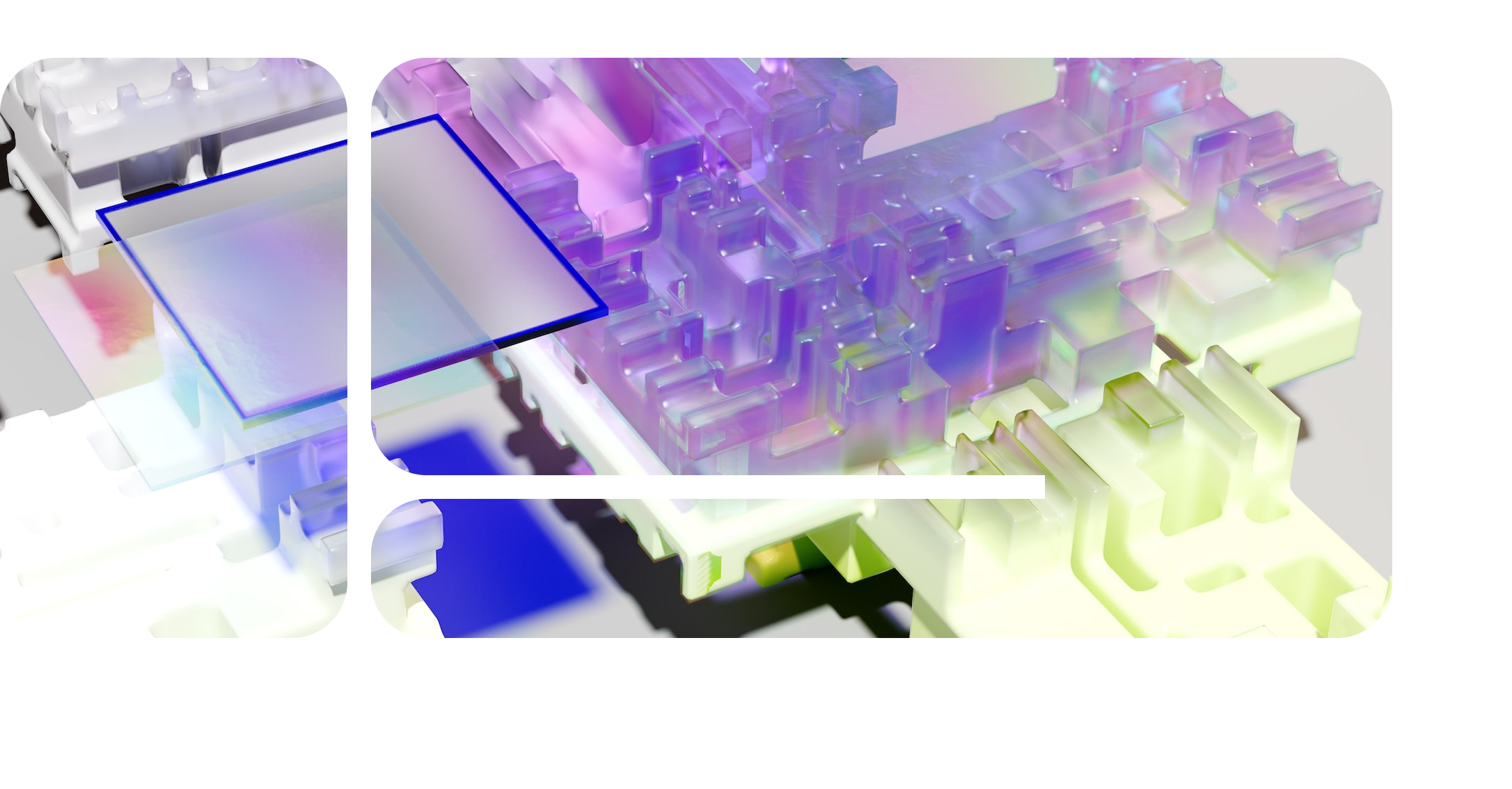Industry Groove – Week 18

Let’s not fool ourselves: Artificial intelligence (AI) has been present in our lives for some time now. It suggests music to us, determines what appears in our feeds, may have decided whether we can take out insurance or get a job. If one wanted to, it could be easily ignored. Most likely, it was the same for most people as it was for me: until the end of last year, AI was present but only in the background.
Now it’s already normal for me to have ChatGPT or Notion AI optimize a text (although I still prefer to write them myself), use AI tools for translations, or create playlist covers with different tools for fun. I would also like to take the time to dive into the field of AI music production. I have already tried lalal.ai, which allows you to easily create song stems. One or two mouse clicks and I already have the a cappella that I was previously searching for in vain.
I have just scratched the surface and I’m sure that there are countless tools out there that will make my life easier, of which I don’t know yet. At the same time, I am convinced that there are also numerous offers that I consider to be completely unnecessary or even cause me concern. Because developments are progressing so rapidly that not only I, but also the music industry, governments and legislators need to sort things out, analyze the situation and carefully consider where the journey should go. However, we will hardly be granted this time, so it will come down to reacting rather than acting. The music industry already knows from bitter experience that this is unlikely to end well.
AI music: The legal situation is not as clear as claimed
- Last week, I wrote that there is a certain degree of uncertainty in the music industry regarding AI music and deepfakes, as many legal aspects are still unclear. Interestingly, the industry wants to convince us that they already have more or less everything under control.
- Universal Music, for example, firmly believes that their and their artists’ rights are being violated and that the laws already reflect this. According to Universal, this applies to both training AI with copyrighted music and to deepfakes like Fake Drake.
- Meanwhile, the distribution company Believe, which includes TuneCore, is convinced that they can already detect and block music that was produced 100% by AI. However, some questions arise: Firstly, should all music that is completely produced by AI really be kept off DSPs, even if it does not violate any copyright? Secondly, how much music is already generated 100% by AI today? “Heart on my Sleeve” and many other currently most popular deepfakes are not. Thirdly, it is, of course, uncertain whether the tool really works smoothly and, if so, how long it is still possible to clearly detect AI music.
- This informative article on The Verge demonstrates that the legal situation is not as clear as portrayed by Universal Music. “There’s no precedent for whether real Drake can stop robot Drake on the basis of copyright”.
- According to the article, for example, an artist’s voice or flow is not protected by copyright. If at all, it is more likely to be a violation of trademark law. Depending on the case, personality rights may also be affected, especially if a Nazi text is put in the mouth of an artist.
- I am not a lawyer and don’t want to pretend that I understand everything. What is clear, however, is that the situation is not as clear-cut as Universal presents it.
Resso ends free tier – will others follow?
- Resso, the streaming service of TikTok’s parent company ByteDance, has informed its free-tier users that it will be discontinued starting May 11. Resso, which has been available only in India, Brazil, and Indonesia so far, will henceforth offer only a premium subscription.
- Some commentators see this as a concession to the major labels, with whom ByteDance is negotiating intensively. It is an open secret that Resso (possibly also under the name TikTok Music) wants to expand into further markets. However, the rights holders, i.e. the labels, seem to be more inclined to apply the brakes, and one of the reasons for this is the poor conversion rate from free to premium.
- This is not the only point of dispute between ByteDance and the music industry, but at least it is one less stumbling block that could stand in the way of expansion.
- In an opinion piece, David Turner argues that ad-supported music streaming is generally broken.
- Even before Resso, the Indian streaming giant Gaana had discontinued its free offering. Deezer has also ended its free tier in some markets, leading to an increase in revenue per user.
- Turner analyzes the figures of Spotify, Pandora, and Tencent Music and shows why the current model should be reconsidered.
Social media platforms gain users but lose advertising revenue
- Various social media platforms have released their first-quarter numbers and they all show a similar trend: while user numbers are rising, advertising revenues are stagnant or declining.
- YouTube has already seen a decline in advertising revenue for the third consecutive quarter. It fell by 2.5% to $6.69 billion. However, revenue in the “Google Other” category, which includes YouTube TV, YouTube Music, and YouTube Premium, increased by a whopping 9% year-on-year, bringing in $7.41 billion.
- Meanwhile, Meta has surpassed the mark of 3 billion users across all its services – Facebook, Instagram, WhatsApp, and Messenger – representing a 5% increase compared to the previous year. Revenue also grew, but at a much slower pace than before, namely by 3% to $28.65 billion in the first quarter of 2023.
- Snapchat was able to increase the number of daily active users by 15% year-on-year, to 383 million. Not quite one percent of them, slightly more than 3 million, pay for Snapchat+. Revenue fell by 7% year-on-year.
Bonus Reads
- MBW is closely monitoring the job postings of TikTok’s owner, ByteDance, and has discovered that they are apparently planning an app for AI music creation. The job posting refers to “an AI-powered tool that provides intelligent music creation and audio editing capabilities”. It further states that the vision is to “significantly lower the music creation barrier and inspire musical creativity and expression, further enriching the music content”. I will keep an eye on this topic.
- Last week, I reported that Grimes is open to the use of her voice for deepfakes. This week, she has already launched the platform for this purpose in partnership with the development studio CreateSafe, inviting users to create AI-generated songs using her voice.
- The decentralized streaming platform Audius is also open to new approaches. Artists using Audius can now decide for themselves whether releases that were trained with their music should appear on their profile. These releases then appear in a “Generated with AI” section on the profile. Audius is taking the first step here that other DSPs still have to take.
- No matter how impressive and somewhat frighteningly good the current AI songs are, Bill Werde absolutely does not want to exaggerate this into a Napster moment. He sees more parallels with the Grey Album by the great Danger Mouse and the remix culture.
- Despite talking big, Triller now has to dig deep into their pockets. The US company has to pay Sony Music $4.5 million for unpaid royalties. Triller generally has a rocky relationship with the music industry. They are also in court with Universal, and they removed the music delivered by Merlin (including that of iGroove artists) from their platform at the end of last year. Although Triller is trying to present itself as a patriotic alternative to TikTok, they are currently messing up with the music rights holders, who are extremely important for a short video platform.
- Chartmetric has analyzed in their usual data-based way what influence a performance at the Coachella festival has on streaming numbers and social media.
Deepfakes of the Week
- Ghostwriter, whether it’s the same who created the Drake and The Weeknd song is controversial, brought together Bad Bunny and Rihanna for the song “Por Qué” and conquered TikTok by storm.
- Deepfakes are not only suitable for creating songs by current stars but can also bring deceased artists back to life or make reunions a reality. For example, when Paul McCartney and John Lennon suddenly appeared on a song together.
- Few current AI projects have received as much positive feedback as the AISIS album – originally an album by the unknown band Breezer, which they then uploaded to the internet with the AI vocals of Liam Gallagher. Oasis fans are celebrating it and even Liam seems to have no problem with it.











